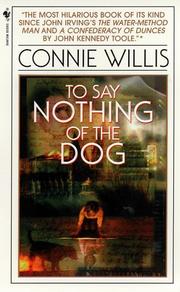What a great, fun read!
4 stars
I read her short story "Blued Moon" back in the eighties in Asimov's magazine, and it stuck with me every since as some of the funnest and funniest sci-fi I've read. This book is all that, in novel form.
The romance is weaved right into a great time travel story that pokes fun at everything and everyone. I confess I'm going to have to go back and read it again just pick up the clues I know were there the first time, that I missed while zooming through.
Unless you hate Victorian England, romance and time travel (and maybe even if you do), this is well worth reading.
I read her short story "Blued Moon" back in the eighties in Asimov's magazine, and it stuck with me every since as some of the funnest and funniest sci-fi I've read. This book is all that, in novel form.
The romance is weaved right into a great time travel story that pokes fun at everything and everyone. I confess I'm going to have to go back and read it again just pick up the clues I know were there the first time, that I missed while zooming through.
Unless you hate Victorian England, romance and time travel (and maybe even if you do), this is well worth reading.




